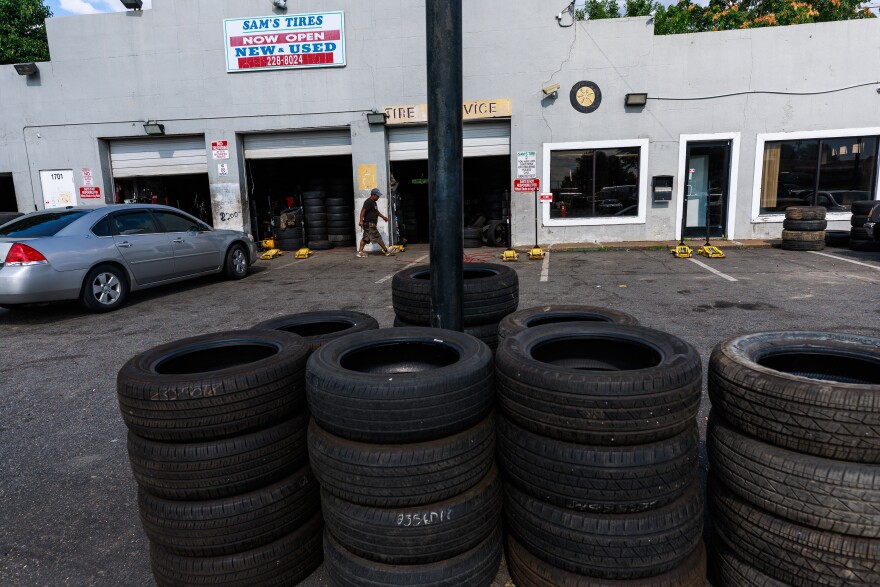The H. Vaughan service station at 1701 Chamberlayne Ave. was one of many automotive businesses serving African Americans traveling on the road.
It was featured in the Negro Motorists Green Book from 1951 to 1955. The Negro Motorist Green Book served as a travel guide in the 20th century filled with places where African Americans were welcomed and safe. In an era when segregation was legalized and lynchings were normalized, especially in the South, a safe road trip was near-to impossible.
The one-story brick building in Northside is now Sam’s New & Used Tire Shop. It’s one of seven remaining Green Book sites in the city.
According to UVA research, Virginia had over 300 businesses catering to Black travelers between 1936-1967, from the Tidewater to the Appalachians. 170 of those buildings have been torn down in the years since, and only about one-third remain today.
The Architecture of the Negro Traveler’s Green Book is a public history project focusing on the Green Book sites’ history. It started in 2016 by three architectural historians in three states: Anna Bruder (Maryland=), Susan Hellman (Virginia) and Catherine Zipf (Rhode Island).
After presenting it to the Southeastern Society of Architectural Historians conference, the team added 20 more states.
“I started photographing these sites probably in 2017, and since then, some have been demolished already,” said Susan Hellman, principal planner for the city of Alexandria. “I'm like, ‘Oh my gosh, I can't believe they tore that down.’”
Coming from a long line of Quakers, she found the project so meaningful to connect with her ancestors. Hellman was studying for her master's degree when her colleague from the University of Virginia asked her to join the project.
“I feel like I'm following my great-great-grandparents’ vision for the country,” she said.
A new state law now recognizes businesses like Vaughan service station and their historic significance. Del. Micheal Mullin (D–Hampton) introduced the bill in January to the Virginia House Natural Resources subcommittee. Both chambers of the General Assembly unanimously passed it; Gov. Glenn Youngkin signed it into law on March 22.
As a result of the law, the Department of Historic Resources, Department of Transportation and Virginia Tourism Corporation are making historical site markers to memorialize Green Book businesses from the 20th century.
So far, they found three existing markers connected to the Green Book and designed small signs to attach to their poles, said DHR Director Julie Langan.
One marker costs about $3,000, according to DHR’s website. In addition to production, money also goes into research and fact-checking information for the markers.

However, Langan said that not every site will get a marker.
“Let's suppose that there are 75 sites; we don't have funding to do all 75,” Langan explained. “Sometimes, we receive special funding that we can put toward that purpose. But many times, it's a local government or a local historical society that covers the cost.”
Hellman said the Green Book law is “going to shine a spotlight on some of these sites and hopefully no more of them will be demolished.”
Forty-one years after Plessy v Ferguson, mail carrier Victor Hugo Green published The Negro Motorist Green Book. The first issue listed Black-owned restaurants, shops, hotels and gas stations in New York City. Later issues expanded from 20 to 50 states and Washington, D.C. until the last publication in 1967.
Today, modern versions of the Green Book use Victor’s as a reference, such as Martinique Lewis’ The ABC Travel Green Book and Crystal Egli and Parker McMullen Bushman’s website, The Inclusive Guide. They acknowledge Black travelers’ presence, representation and history in the travel industry.
To submit a marker, a community group or sponsor needs to submit an application to the Department of Historic Resources. The next deadline is Aug. 1.


